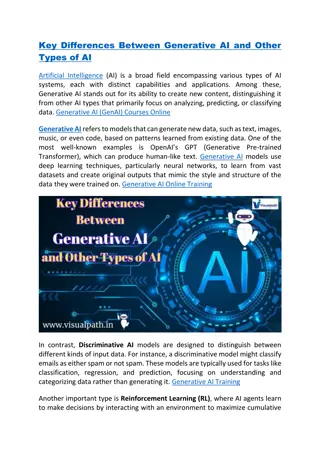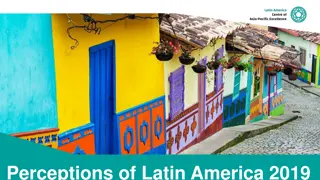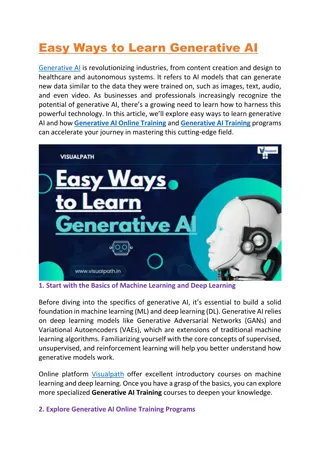Generative AI: What should governments in Latin America do?
Specific measures for governments in Latin America to navigate the complexities of generative AI, focusing on ongoing policy implementation, ethical considerations, regulatory experimentation, and key areas of work in the region.
Download Presentation

Please find below an Image/Link to download the presentation.
The content on the website is provided AS IS for your information and personal use only. It may not be sold, licensed, or shared on other websites without obtaining consent from the author.If you encounter any issues during the download, it is possible that the publisher has removed the file from their server.
You are allowed to download the files provided on this website for personal or commercial use, subject to the condition that they are used lawfully. All files are the property of their respective owners.
The content on the website is provided AS IS for your information and personal use only. It may not be sold, licensed, or shared on other websites without obtaining consent from the author.
E N D
Presentation Transcript
Generative AI: What should governments in Latin America do? Armando Guio Espa ol
Specific measures that can help governments and decision-makers in Latin America develop a clear roadmap for navigating this complex environment:
01. Continue with ongoing AI policy implementation while increasing public participation therein Inclusive practices will have the added benefit of educating the public about both generative AI and policy decisions.
02. Define societal guardrails While the benefits of generative AI are great, so are the risks. Ethical discussions must be a priority and different models must be piloted to determine how basic principles may be secured. Governments can reference the US s Blueprint for an AI Bill of Rights and employ ethical certifications for AI applications.
03. Accelerate regulatory experimentation and develop a first draft of AI legislation for the region Ambitious policy prototyping projects will allow experimentation with innovative regulatory proposals before they are adopted by governments. A key next step is to develop the first draft of generative AI system regulation that will support sandboxes and other prototyping, like Europe s white paper on AI regulation.
3 Main Areas of Work 1. Regulatory Sandboxes: These will be used for the regulation of topics like privacy and intellectual property as they relate to AI. This will undoubtedly mark next year s agenda. Brazil s regulatory sandbox for generative AI and data protection will have the highest impact on the region. 2. Proposed Legislation: Chile and Colombia have proposals for new data protection norms. It will be important to keep an eye on legislative projects pertaining to AI in countries like Brazil or Costa Rica. 3. Regional Council- Santiago Declaration: The decisions made during the Regional Council and the declaration that will come out of the meeting in Santiago de Chile will be fundamental for the future of AI governance in the region.
Brazils AI Sandbox Brazil has a regulatory AI Sandbox that focuses on generative AI and transparency, led by the ANDP. The case of Brazil is particularly interesting because the country has two legislative projects about AI currently being debated in Congress.























